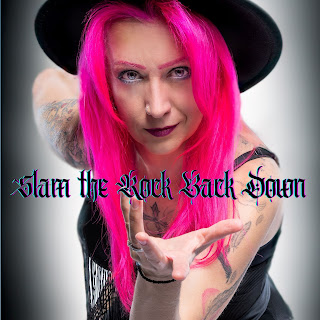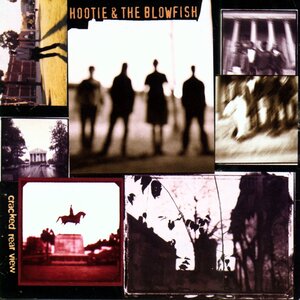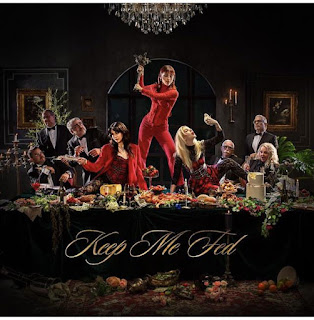Maybe that means power-ish metal is an unexpected choice for VK Lynne to use in addressing the state of the world. What often gets dubbed as 'happy metal' has long been more than that, but just as culture can't shake stereotyping groups of people, the music world hasn't quite shaken its disdain for power metal.
VK takes on the harder edge of the genre, with heavier guitars and a chugging rhythm that, if anything, recalls a streamlined version of her days fronting the progressive metal band Stork. The guitars are tuned down, the high frequencies stripped away to give the song a low rumble, and to give VK's voice more room to be the siren sounding the warning to us all.
The meaning of the word 'siren' has changed over time, shifting from the alluring call of death to the signal that tells our hearts to start beating faster. VK's siren is blaring the message that we, as humanity, are better than what we show ourselves to be. Between online culture making it easier to speak anonymously, and political culture taking sandpaper to the very idea of respect, we are wallowing in the deepest end of the cesspool on a daily basis. Speaking of sirens, both the guitar tone and the runs of notes tagging the riffs are very much in the style of Bruce Dickinson's best solo work. In fact, it can easily be argued this does that better than most of Bruce's own album that came out earlier this year.
VK belts out lyrics calling us to be better, to have empathy for our fellow man. As someone who has always struggled with that ability, I can speak from experience that empathy is a greater display of strength than spitting bile. Anyone can pick up a knife and draw blood, but you have to be trained to pick up a needle to mend the wound. Grace is something we talk about in divine terms, but we do so as a way of ignoring our own role in the process. If we act terribly, we can say it is all part of God's plan, but all that does is paint the deity in the worst possible light.
No, it is our job to slay the dragons among us. The best way to do that is to not give them oxygen, so their fire breath cannot ignite. If no one listens to the toxic voices, they will float off into the ether of space and time, being discovered only as the relics of the past they are.
There are two ways to handle times like these in music. We can either give in to our depression and make sad-sack music for us to tote our issues in, or we can scream back in the face of those who want to dissuade us into silence. VK's voice uses all her power here, piercing through the thick mix to give us the message; Don't feed the monsters, don't listen to the hate, don't forget better angels still exist if we invite them to visit us.
This song tells us that when the ugly parts of humanity crawl out from under their rocks, we need to slam those rocks back down, and bury them once and for all. There will always be that element in the darkness, but we can choose not to give it daylight. Finding the strength to do that can be difficult, and maybe a fist-pumping bit of metal is what we need to push ourselves into action. VK, and her knack for melodies that soothe the hard edges of her very pointed message, might be just what the times call for.
You too can slam the rock back down as early as tomorrow. Pre-save the song here.




